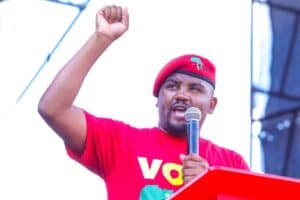With only 40% of South Africans having emergency savings, Money Smart Week highlights the urgent need for better money management skills.

Money is central to every decision we make. From what we eat to how we raise our children and prepare for the future.
Despite this, the harsh truth is many South Africans were never given the opportunity to learn the basics of managing money well.
That is why Money Smart Week South Africa (MSWSA) exists – it is here to change that, one conversation, one tip and one empowered individual at a time.
The campaign was officially launched in 2018 by the national consumer financial education committee, with the aim of making financial education easier, digestible and accessible to every person, regardless of their income and socioeconomic status.
Marking eight years of this campaign, the national platform has grown, with 75 partner organisations who delivered practical money lessons across the country in 2024.
To further expand and build on this momentum, MSWSA will deepen its aim under the theme “Smart money: financial foundations for a resilient future”.
Financial literacy isn’t a privilege; it’s a right. Every person deserves to understand how money works so they can make decisions confidently and avoid costly mistakes.
These mistakes may look like people falling into over-indebtedness without knowing their rights.
Families living without emergency funds and young working adults entering adulthood with no understanding of credit.
It is so easy, especially with factors such as technology making many targets and vulnerable to fraud risks, scams and misleading financial products. And that is because many are unaware.
As a society, we tend to underestimate the real consequences of the lack of knowledge. As it stands, actual financial resilience remains low.
ALSO READ: Lessons from the two-pot retirement system about the realities of savings
Statistics from a 2024 Sanlam survey revealed that only 40% of South Africans had emergency savings, while 34% held adequate insurance and merely 36% tracked their financial goals, indicating a significant gap between knowledge and behaviour.
When we speak about financial literacy, we are talking about having the ability to make sound financial choices.
Whether you’re taking out a loan, signing a debit order, or planning your retirement, knowing better will guarantee that you do better.
It is easy to fall victim to borrowing money without a clear repayment plan, skipping emergency savings, signing contracts you don’t understand and believing in too-good-to-be-true offers.
To begin your journey of financial stability and understanding, it is crucial to start with low-hanging fruits. This may come in the form of budgeting and tracking your expenses.
The use of money should never be a taboo topic and that’s why we encourage more people to participate in such vital conversations.
This invite extends to human resources teams, financial education providers, community groups and government.
A central part of the campaign is accessibility and that is why we firmly emphasise the importance of free educational financial literacy activities.
This comes in various forms. From in-person workshops and presentations to community activation and exhibitions and webinars.
The point is to be creative, accommodative and inclusive of everyone.
So, if the best route to take for a wider reach is through a community radio broadcast or a social media campaign, we welcome it because this campaign should reach anyone and everyone, regardless of their access to a smartphone.
ALSO READ: Five steps to get the best value out of your financial adviser – but do you need one?
Oftentimes lower socioeconomic households exclude themselves from such important conversations and that should change.
Money talks are important for everyone. The root of our theme this year is to solidify the foundations of millions to guarantee a better future.
Not just for themselves but for future generations, who can learn from early on the power of understanding money.
By the end of this campaign, we want the conversation to continue. For people to be educated and to ask the right questions before signing up for any product.
This will assist in ensuring that individuals know what they are getting themselves into financially. Meaning they will be able to know the difference between a savings account and fixed deposits.
To interest rates and total repayment costs and what their insurance actually covers.
Knowledge is truly power and when you understand the financial information presented to you, you can easily and confidently walk away if something feels wrong.
Our objective is simple and straightforward: to transform the financial narrative and empower a nation.
It is crucial to remember that you have the power to make informed, confident decisions that shape your financial future, and Money Smart Week is your chance to start.
Your money is your responsibility – protect it with knowledge.
NOW READ: Making these money moves in your 20s will help you gain financial freedom for your future self
Support Local Journalism
Add The Citizen as a Preferred Source on Google and follow us on Google News to see more of our trusted reporting in Google News and Top Stories.






